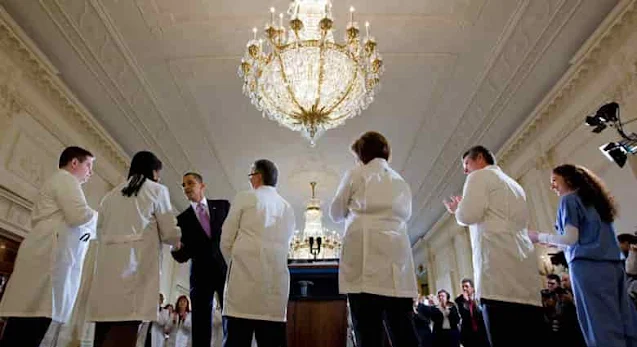Over 80,000 Americans Died of Flu Last Winter, Highest Toll in Years
Summary: According to a report from U.S. federal health
officials released last week of September 2018 quite 80,000 Americans died of flu during
the 2017-2018 flu season.
supported an opportunity down by age 90% were over
the age of 65. One hundred and eighty of the deaths occurred among children and
adolescents. The mortality rate was the highest in more than a decade.
Experts urge Americans to
get vaccinated and explained that flu shots don't cause the flu.
Suggested prompts for discussion:
1. One of the points made was that the high mortality rate
was unusual since the the causative agent was an existing flu strain, not a new
pandemic strain.
1. Why is it important to know what strain of influenza is
associated with a flu season?
2. What are the concerns related to the emergence of a new
pandemic strain?
2. There are a number of myths out there related to the flu
vaccine.
1. Why do experts state that the flu vaccine does not cause
the flu? Include an examination of the cycle of transmission related to the flu.
2. What other myths are associated with the flu vaccine and
how would you as a health care provider counter those myths with a person you
are caring for especially someone at high risk for adverse outcomes
associated with the flu?
3. Ninety percent of the deaths occurred in those over the
age of 65.
1. Why are the elderly at greater risk for flu-related
mortality?
2. Last year’s vaccine was 40% effective. Why is it still
important to vaccinate?
3. If it is the elderly who are at greatest risk why should
others be vaccinated and what role does herd immunity play?
4. Infectious disease experts have advocated for a universal
flu vaccine.
1. What is a universal flu vaccine and how does it differ
from current vaccines?
2. Why would it be a better public health approach?
3. What are the barriers to implementing a universal
vaccine approach?

0 comments:
Post a Comment